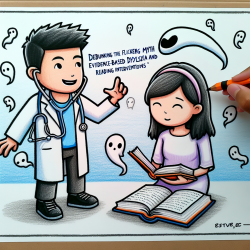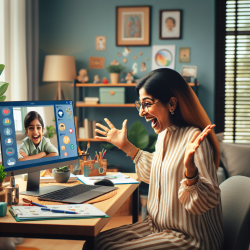In the quest to improve reading outcomes for children with dyslexia, various tools and technologies have been proposed. One such intervention is the use of flickering words, either through stroboscopic light or flickering glasses. However, recent research by Lubineau et al. (2023) titled "Does word flickering improve reading? Negative evidence from four experiments using low and high frequencies" provides compelling evidence against the efficacy of these methods.
The study involved four comprehensive experiments to assess the impact of flickering on reading performance among both regular readers and dyslexic individuals. Here are the key findings:
- Experiment 1: Involving 375 regular adult readers, the study found that low-frequency flickering (10 or 15 Hz) actually slowed down word recognition and slightly biased participants towards pseudowords.
- Experiment 2: Conducted with 20 dyslexic children, the study observed no significant impact of low-frequency flickering on reading performance.
- Experiment 3: Tested the efficacy of high-frequency flickering devices like Lexilight lamps and Lexilens glasses on 22 dyslexic children. No detectable improvement in reading fluency, letter identification, or mirror letter processing was observed.
- Experiment 4: Focused on two individuals who claimed to benefit from flickering glasses. The results indicated only a small placebo effect in one participant, with no substantial evidence of genuine improvement.
These findings underscore the importance of relying on rigorous scientific research when considering interventions for dyslexia. While flickering tools are marketed with bold claims, the evidence suggests that they do not facilitate reading for the majority of individuals. Instead, practitioners should focus on evidence-based strategies that have demonstrated efficacy.
For instance, increasing font size and character spacing are proven methods to improve reading speed and accuracy for dyslexic readers. Studies by O'Brien et al. (2005) and Rello & Baeza-Yates (2017) have shown that larger font sizes and increased spacing between letters and words significantly enhance reading performance.
In conclusion, while innovative tools and technologies can be appealing, it is crucial to base clinical decisions on solid scientific evidence. By doing so, we can ensure that the interventions we employ truly benefit the children we aim to support.
To read the original research paper, please follow this link: Does word flickering improve reading? Negative evidence from four experiments using low and high frequencies.










